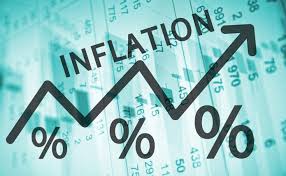Inflation is expected to go up marginally to 21.6% in October 2024.
This is after it surprisingly increased by 110 basis points (bps) to 21.5% in September.
According to IC Research, the government end-year target of 13.0% – 17.0% faces elevated upside risk which could stay the policy rate at 27.0% at the November 2024 Monetray Policy Committee (MPC) meeting.
“We had expected the food price shock from the reported dry weather and flooding conditions to reflect in the October to November 2024 CPI [Consumer Price Index] data with modest upticks. However, the earlier-than-expected impact raises our concerns about food supply and the likely price developments in 4th quarter of 2024 amidst anticipated spending pressure to execute the upcoming election”.
“In our September 2024 MPC note – going jumbo on dovishness – we flagged the rapid increase in currency outside banks as a risk to FX [foreign exchange] and price stability ahead of the elections. The latest inflation upsurge coupled with the 200bps cut in the nominal policy rate reduces the ex-post real policy rate to 5.5% in September (vs 8.6% in August)”.
This it said pulls Ghana’s real policy rate below peer countries such as Kenya (9.2%) and Uganda (7.0%).
Food inflation
Food inflation was the upside catalyst for the headline rate as it surged out of the blue by 300bps to 22.1% in September 2024.
The upturn was largely broad-based with 12 out of the 15 subclasses of food inflation recording higher annual inflation.
This partly reflects the unfavourable base effect created by the annual deflation recorded for fruits & nuts, dairy product & eggs, and oil & fats in the prior month.
Non-food inflation
Non-food inflation declined by 60bps to 20.9% to partly offset the upshift in the headline rate for September 2024.
As expected, the decline in non-food inflation was underpinned by disinflation for heavy-weight inflation such as utilities, gas & other fuels (26.4% | -540bps) and transport (16.3% | -110bps).
During the CPI data collection window for September 2024, we noted a 1.8% and 1.5% decline in petrol and diesel prices, respectively. This mainly underpinned the slower price increases for utilities, gas, & other fuel with a restraint on transport fare hikes.
Latest Stories
-
I want to focus more on my education – Chidimma Adetshina quits pageantry
3 hours -
Priest replaced after Sabrina Carpenter shoots music video in his church
3 hours -
Duct-taped banana artwork sells for $6.2m in NYC
3 hours -
Arrest warrants issued for Netanyahu, Gallant and Hamas commander over alleged war crimes
3 hours -
Actors Jonathan Majors and Meagan Good are engaged
3 hours -
Expired rice saga: A ‘best before date’ can be extended – Food and Agriculture Engineer
4 hours -
Why I rejected Range Rover gift from a man – Tiwa Savage
4 hours -
KNUST Engineering College honours Telecel Ghana CEO at Alumni Excellence Awards
4 hours -
Postecoglou backs Bentancur appeal after ‘mistake’
4 hours -
#Manifesto debate: NDC to enact and pass National Climate Law – Prof Klutse
4 hours -
‘Everything a manager could wish for’ – Guardiola signs new deal
5 hours -
TEWU suspends strike after NLC directive, urges swift resolution of grievances
5 hours -
Netflix debuts Grain Media’s explosive film
5 hours -
‘Expired’ rice scandal: FDA is complicit; top officials must be fired – Ablakwa
6 hours -
#TheManifestoDebate: We’ll provide potable water, expand water distribution network – NDC
6 hours

